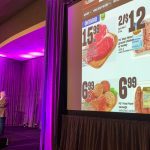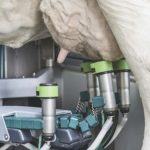Tag Archives sustainability

Sustainable soybean program underway
Food-grade, IP soy growers showing interest in verification, Soy Canada says

Governments reach Sustainable Canadian Agricultural Partnership agreement
Ontario agri-food sector to receive $1.77 billion in new agreement

Key mechanisms uncovered for sustainable ammonia production
Science Notes: Research expands on previous production efficiency efforts

Canadian agri-food scientists urged to switch tracks
A new federal strategy asks scientists to focus on sustainability and climate change rather than production

Building brand equity key to Ontario beef sector growth

How to expand production and slash emissions
A recent report concludes that carbon sequestration is the key to producing more crops while reducing greenhouse gases

Feds open up consultations for sustainable ag strategy
Producer groups to have reps on advisory committee

Low cost, real-time soil carbon quantification could be a game changer
Two start-ups combine forces to provide farmers with better decision making on soil carbon

Dairy industry makes strides in sustainability and GHG mitigation
Advances and adoption of new technologies show positive impact, according to new report

Study highlights economic impact and funding shortfall of RMP/SDRM programs
Study results come at an important time as farm sectors struggle with inflation
